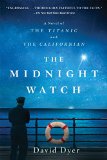Summary | Excerpt | Reviews | Beyond the book | Read-Alikes | Genres & Themes | Author Bio

By turns elegiac, profound, and comic, Landfalls reinvents the maritime adventure novel for the twenty-first century.
In her wildly inventive debut novel, Naomi J. Williams reimagines the historical La Pérouse expedition, a voyage of exploration that left Brest in 1785 with two frigates, two hundred men, and overblown Enlightenment ideals and expectations, in a brave attempt to circumnavigate the globe for science and the glory of France.
Deeply grounded in historical fact but refracted through a powerful imagination, Landfalls follows the exploits and heartbreaks not only of the men on the ships but also of the people affected by the voyage - natives and other Europeans the explorers encountered, loved ones left waiting at home, and those who survived and remembered the expedition later. Each chapter is told from a different point of view and is set in a different part of the world-ranging from London to Tenerife, Alaska to remote South Pacific islands and Siberia, and eventually back to France. The result is a beautifully written and absorbing tale of the high seas, scientific exploration, human tragedy, and the world on the cusp of the modern era.
For all that, however, this novel is much more than simply a recounting of the tale of two French ships lost at sea over two centuries ago. Landfalls is also a very human story. Revealing her innate understanding of the human condition, Williams ensures many of mankind's less attractive qualities and foibles jostle for space alongside our more noble traits – the pride, arrogance and recklessness of the men aboard ship are juxtaposed with acts of astonishing bravery, empathy, loyalty, friendship and love...continued
Full Review
(745 words)
This review is available to non-members for a limited time. For full access,
become a member today.
(Reviewed by Sinéad Fitzgibbon).
The intellectually febrile period between the early 1600s and the late 1700s which saw an unsurpassed expansion in humankind's understanding of the world around us, particularly in the arenas of science (especially physics), and social and political philosophy, later came to be known as The Age of Enlightenment, also known as the Age of Reason or simply, The Enlightenment. The term signifies what was seen as an emergence from a long period of cognitive darkness, where superstitions and ignorance abounded, into the light of knowledge and awareness.
The Enlightenment was promoted by radical thinkers and philosophers in the coffee houses of Scotland and England, before spreading throughout Europe, and particularly to France. The main ...
This "beyond the book" feature is available to non-members for a limited time. Join today for full access.

If you liked Landfalls, try these:

by Annie Proulx
Published 2017
From Annie Proulx - the Pulitzer Prize- and National Book Award - winning author of The Shipping News and Brokeback Mountain, comes her masterwork: an epic, dazzling, violent, magnificently dramatic novel about the taking down of the world's forests.

by David Dyer
Published 2017
David Dyer's The Midnight Watch is a powerful and dramatic debut novel - the result of many years of research in Liverpool, London, New York, and Boston, and informed by the author's own experiences as a ship's officer and a lawyer.
In youth we run into difficulties. In old age difficulties run into us
Click Here to find out who said this, as well as discovering other famous literary quotes!